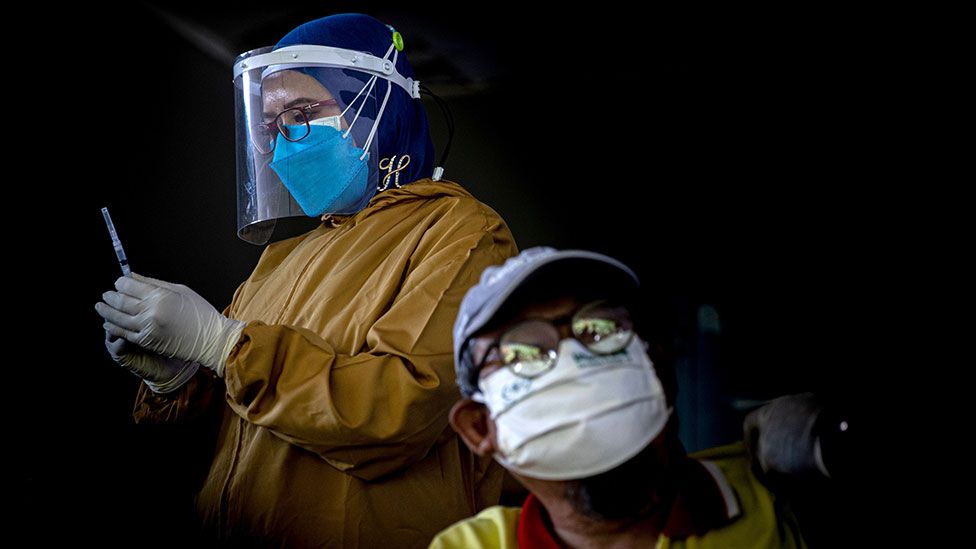 More than 4.4 billion doses of coronavirus vaccines have been administered, in over 190 countries worldwide.
More than 4.4 billion doses of coronavirus vaccines have been administered, in over 190 countries worldwide.
However, there are vast differences in the pace of progress in different parts of the world.
Some countries have secured and delivered doses to a large proportion of their population - but others are some way behind.
This information is regularly updated but may not reflect the latest totals for each country. Total vaccinations refers to the number of doses given, not the number of people vaccinated. It is possible to have more than 100 doses per 100 population as some vaccines require two doses per person.
With an aim to give doses to nearly every adult around the world, this is the largest vaccination programme in history.
China and India have administered the highest number of doses, with almost 1.8 billion and more than 500 million respectively. The US ranks third, with around 350 million.
While countries in Europe and the Americas are progressing well with their vaccination campaigns, many states in Africa are experiencing supply issues.
Many poorer countries are relying on deliveries from Covax, a scheme led by Gavi, the Vaccine Alliance, together with the World Health Organization (WHO) and the Coalition for Epidemic Preparedness Innovations (CEPI), which is trying to ensure everyone in the world has access to a Covid vaccine.
Ghana became the first country to receive vaccines through this programme on 24 February.
Covax plans to deliver about two billion vaccine doses globally by the end of the year, but many vaccines require two doses per person.
Leaders of the G7 countries have pledged to supply one billion vaccine doses to poorer countries, either directly or through the Covax scheme.
The vaccine produced by Pfizer and BioNTech was the first approved by the WHO, followed by several others.
The Oxford-AstraZeneca vaccine is now the most widely used around the globe.
Unlike Pfizer's jab - which has to be kept at an extremely cold temperature (-70C) - the Oxford vaccine can be stored in a normal fridge, which makes it easier to distribute.
The African Union has started the distribution of 400 million vaccines produced by Janssen (Johnson & Johnson) - which, unlike the Pfizer and Oxford-AstraZeneca vaccines, only requires one dose.
Most governments are starting with doses for the over-60s, health workers and people who are clinically vulnerable.
In countries such as Israel and the UK, there are already promising signs the vaccines are reducing hospital admissions and deaths.
Worldwide, more than 200 possible vaccines are undergoing trials to test their efficacy and safety.
By The Visual and Data Journalism Team
BBC News